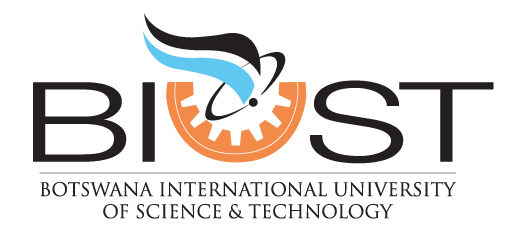The Botswana International University of Science and Technology (BIUST) continues to advance Botswana’s transformation into a knowledge-based economy by championing innovation, research, and entrepreneurship. In line with the United Nations Sustainable Development Goals (SDGs), BIUST strives to empower students and researchers to develop solutions that promote sustainable growth and inclusive development.
On 28th October 2025, BIUST launched the Mentorship in Action for Startup Acceleration (MASA) Innovation Mentorship Sessions at its Palapye campus, an inspiring initiative designed to nurture creativity and entrepreneurship among students, researchers, and postdoctoral fellows.
During a courtesy call to the Acting Vice Chancellor, Professor Elisha Shemang, who is also the Deputy Vice Chancellor, Teaching and Learning, the visiting team was welcomed to BIUST. Professor Shemang expressed BIUST’s pride in the partnership and reaffirmed the university’s dedication to producing knowledge workers who will drive Botswana’s socio-economic transformation. He noted that as BIUST continues to grow, it invites private investors to collaborate in building a sustainable innovation ecosystem.
The MASA Innovation Programme is modelled after the globally acclaimed MIT Sandbox (USA) and UM6P Explorer (Morocco) programmes and has been adapted for Botswana’s unique context. This collaboration connects the experience of global innovation ecosystems with Botswana’s talent and vision for sustainable development.
The official launch of the national programme took place at the University of Botswana on 23rd October 2025. Fully funded by the Government of Botswana through the Ministry of Trade and Entrepreneurship, the programme is coordinated by the Department of Value Chain Development and represents a five-year collaboration between the Government of Botswana and the Massachusetts Institute of Technology (MIT) through the Kuo Sharper Centre.
At BIUST, the programme falls under the Office of the Vice Chancellor and is managed through the Deputy Vice Chancellor, Research, Development and Innovation (RDI).
Professor Patricia Makepe, Dean of the School of Business and Professional Development and MASA Programme Director, emphasised that the initiative contributes directly to SDG 4 (Quality Education) by providing hands-on, experiential learning that bridges academia and industry.
“MASA Innovation aligns perfectly with Botswana’s Vision 2036 and the Sustainable Development Goals (SDGs). By empowering students to innovate and create solutions to real-world problems, we are nurturing the next generation of change-makers who will drive Botswana’s transformation into a knowledge-based economy,” she said.
Representing the global partners, Ms. Irene Grzybowski, Director from MIT Sandbox and UM6P Explorer, noted that the initiative reflects SDG 17 (Partnerships for the Goals) by strengthening international cooperation in science, technology, and innovation.
“It is inspiring to see the level of creativity and determination from BIUST students. MASA Innovation is about learning by doing, and we witnessed a community of innovators ready to make a difference. Botswana has all the ingredients to become one of Africa’s leading innovation hubs,” she remarked.
The programme brings together innovators from BIUST and UB, supported by both MIT mentors and local experts, combining global expertise with Botswana’s ingenuity. Student teams are developing solutions in Artificial Intelligence, Software Development, Agriculture, Healthcare, and FinTech, areas that promote SDG 8 (Decent Work and Economic Growth) by stimulating entrepreneurship and creating opportunities for sustainable employment.
Dr. Tirelo Moepwa, MASA Innovation Programme Manager at BIUST, described the mentorship sessions as a living example of collaboration in action.
“The beauty of the MASA Innovation Programme lies in its inclusivity and practical approach. There are no winners or losers here, only learners who grow through experience. This is how innovation ecosystems are built, through mentorship, experimentation, and shared purpose,” he said.
Participants benefit from access to essential innovation resources, including financial support, prototyping facilities, intellectual property guidance, workspace, and advanced computing platforms. These resources are key to achieving SDG 9 (Industry, Innovation and Infrastructure) by supporting innovators as they move from concept to impact, strengthening Botswana’s capacity for technological advancement.
Through the partnership between MIT Sandbox, UM6P Explorer, and the Ministry of Trade and Entrepreneurship, BIUST continues to cement its position as a national leader in science, technology, and entrepreneurship, turning ideas into action, partnerships into progress, and vision into sustainable impact.
